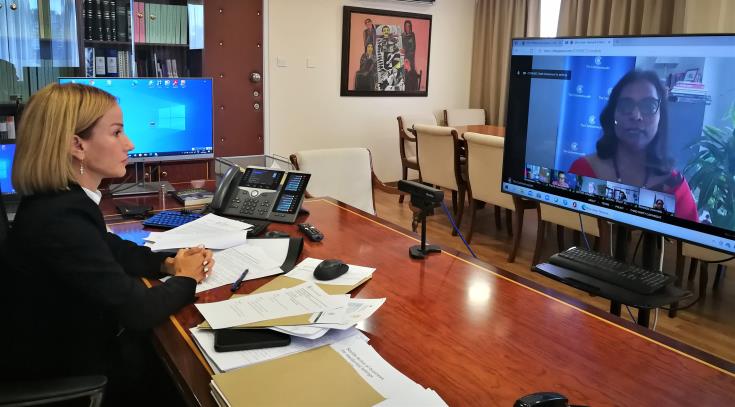Cyprus has not closed the gender gap in politics, ranking 112 globally for female participation in parliament, as less than one in five MPs are women.
According to a Research, Studies and Publications Service of the House of Representatives, just 19.6% of elected MPs are women.
The study finds that Rwanda leads the board with 61.3% women MPs, followed by Cuba with 53.2% female representatives, Bolivia is third with 50%.
The top EU member to appear on the list is Sweden in sixth place, with 47% female MPs.
Cyprus is just one spot behind Greece, where 20.7% of MPs are women.
Critics say this is yet more proof that the gender gap is not narrowing, but women’s participation in key positions is lagging compared to the rest of the world.
Cyprus’ ratio of women in parliament reached 22% as several men stepped down to take senior positions in the government or due to their involvement in the recent ‘golden passports’ scandals.
“Although one might imagine that 22% of women MPs is an improvement compared to previous years, the truth of the matter is this increase came about because male MPs moved on to other posts or resigned, with the majority of those next in line being women,” Director of the Mediterranean Institute for Gender Studies, Susana Pavlou has said.
The Gender Gap Report issued by the European Institute for Gender Equality earlier last year placed Cyprus a spot higher at 111th from 162 countries.
Pavlou argued women have to deal with barriers such as the lack of social welfare and childcare services, forcing them to stay at home.
“Gender inequality in key positions is mostly down to the lack of political will from the government and the political parties.
In the parliamentary election on Sunday, of the record 651 candidates, less than a quarter (157) are women (24.1%), with just two small parties having female leaders – incumbent Anna Theologou of Allagi Genias and former MEP Eleni Theocharous, who heads Solidarity.
Considering the candidate lists of the two major political parties in Cyprus for the May elections, female participation is no more than 25%.
Ruling DISY has 14 women from 56 candidates, while the main opposition party AKEL has 13 women on its ballot.
Equally disappointing are the figures of women in the cabinet, with just three women holding one of the 16 government portfolios, less than one fifth.
According to the House’s study, Finland has the most women in their government, with 12 out of 19 ministers being female (63.2%), followed by Spain’s 18 ministers and 11 deputy ministers (61.1%).
In Sweden, out of the 23 members of the government, 12 (52.2%) are women.










